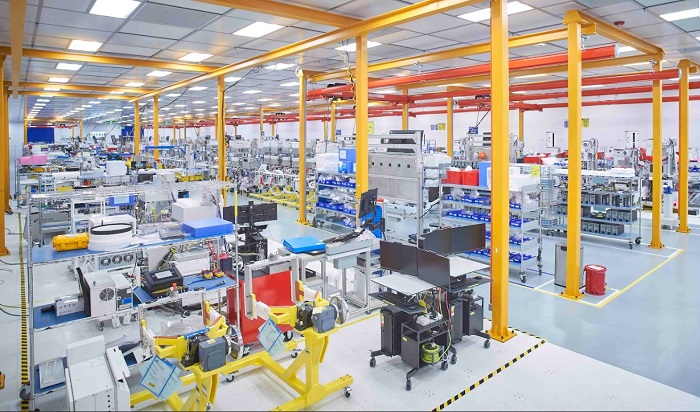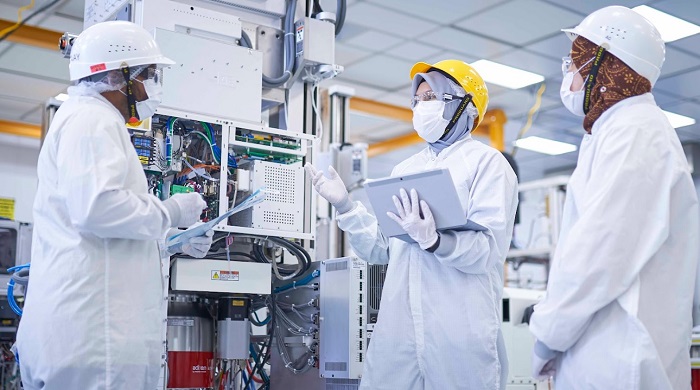SEMICON SEA 2024: For Malaysia’s NSS to succeed, parents must encourage kids to study engineering says Lam Research
By Dashveenjit Kaur June 10, 2024
- First to support capital equipment manufacturing in Malaysia, boost for NSS goals
- Collaborating with unis & technical institutions to ensure pipeline of skilled professionals

Two weeks has passed since Malaysia introduced the National Semiconductor Strategy (NSS), which has sparked debate about the country's ability to accomplish the ambitious objectives outlined in the 'living document'. Amidst the discussions, the presence of Lam Research in Malaysia demonstrates the broadening of the semiconductor supply chain in the country.
A California-based American supplier of wafer-fabrication equipment and related services to the semiconductor industry, established by David K Lam in 1980, Lam opened a manufacturing plant in Penang in Aug 2021, long after it established a presence in Singapore in 1992. Yet the plant, at 800,000 sq ft, proved to be its largest and most advanced facility at the time. It still is the largest facility for Lam and in May the company added an automated warehouse with state-of-the-art facilities such as advanced systems, technologies, and robots, working in concert with its workers to produce leading-edge wafer fabrication tools.
A leading provider of wafer fabrication equipment and services, Lam's decision to establish this facility sets it apart from other major semiconductor equipment makers like ASML, Tokyo Electron Ltd. (TEL), Applied Materials, and KLA Corporation, none of which have manufacturing in Malaysia.
By being the first major capital equipment manufacturer to set up operations in the country, Lam, which had 2023 revenue of US$17.43 billion, has paved the way for other industry players while fostering a robust ecosystem that supports Malaysia's semiconductor ambitions.
This expansion not only enhances Malaysia's position in the global semiconductor supply chain but also cultivates a skilled workforce essential for the NSS's success. Andrew Goh, Corporate Vice President and General Manager, Global Customer Operations, Lam Research Southeast Asia, highlighted this during a recent media briefing at the SEMICON SEA 2024 conference in Kuala Lumpur. "We are the first company to support capital equipment manufacturing in Malaysia, which means that we are actually coming in to grow more talent to make sure that more people are able to learn about building a tool."
[Ed: Para updated to reflect Goh's correct designation.]
Developing a skilled workforce capable of handling sophisticated semiconductor equipment will help Lam , which has invested US$213 million (RM1 billion) in the facility, to make it the highest volume manufacturing site among its global operations.
Lam's commitment injects further momentum into the semiconductor ecosystem in Malaysia. "What we have here in Malaysia is a good start,” said Goh, adding, “I think we just have to continue to make ourselves ready for even bigger growth to come.” Those growth prospects have just been given a massive fillip by the NSS with its target to hit at least US$106.6 billion (RM500 billion) in investments during Phase 1.
Infusing kids with dream of acquiring engineering background

Strengthening the talent pool has rightly been identified as a key enable to unlock this growth potential. The government has set an ambitious target of training, and upskilling 60,000 engineers in semiconductor-related fields between the next five to ten years.
Addressing this challenge, Goh said, "It's difficult to say how they'll do it. But as I said before, schools must be prepared, and more people must want to study engineering. We, as parents, have to cooperate as well. We have to do our job to encourage our kids to go to school with the dream of acquiring an engineering background."
Goh said Lam sees itself playing a critical role in realizing the NSS by leveraging its advanced packaging technologies and fostering local talent development. But addressing this talent challenge will require a collaborative effort between industry players, educational institutions, and the government.
To achieve this, Lee Chee Ping, Senior Director at Lam, who was part of the briefing, said Lam is actively collaborating with local universities and technical institutions to ensure a steady pipeline of skilled professionals. "Imagine if every company does the same thing; there will be a big change. So the initiative laid out in the NSS is good, but how are we going to execute it? That will be the challenge.”
Advanced packaging to meet AI demands
At the core of Lam's Malaysian operations lies its expertise in advanced packaging – a critical technology enabling the integration of multiple chips into a single package, enhancing performance, reducing power consumption, and improving functionality for devices such as artificial intelligence (AI) chips.
The company's advanced packaging solutions are instrumental in addressing the challenges faced by AI chip manufacturers, including the need for more processing power and the "memory wall" challenge, which involves bringing memory closer to the processing units. Chee Ping highlighted the company's commitment to addressing industry challenges through continuous innovation.
"Lam identifies potential industry issues and technical challenges. Therefore, we continue to have R&D in equipment design, working very closely with customers and sharing our strategies in direct collaboration to develop the next generation of machines for the next generation of packaging.”
Working closely with customers involves the likes of Intel, which Chee Ping noted has doubled down on its investments in Malaysia, and new entrants like Taiwan based Siliconware Precision Industries Co, Ltd (SPIL) which just broke ground on a US$1.28 billion (RM6 billion) advanced packaging facility in Penang. "Malaysia is booming in the semiconductor packaging business," he said of the country that is the 6th largest semiconductor exporter in the world. Lam intends to both ride that boom and contribute towards it.
Related Stories :


